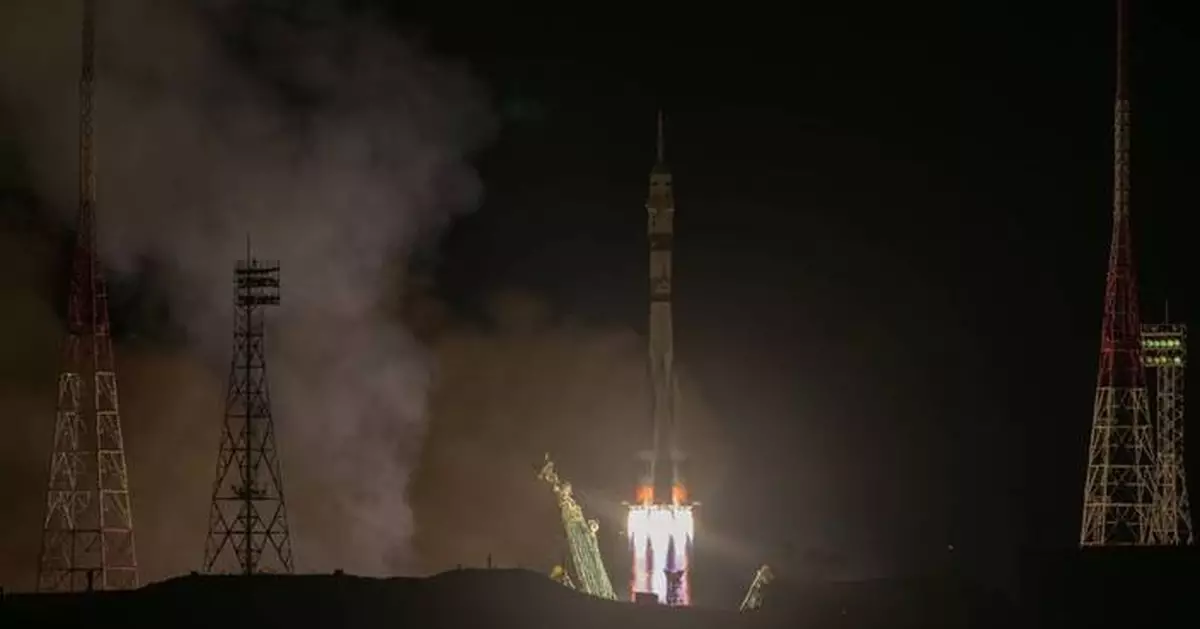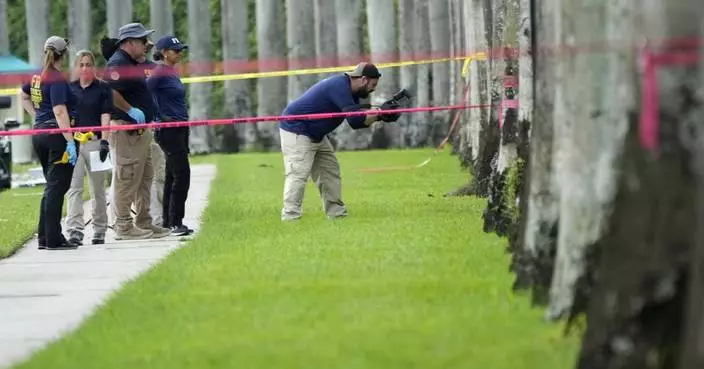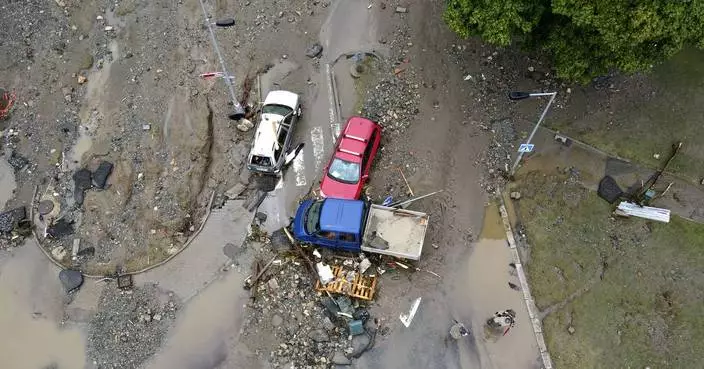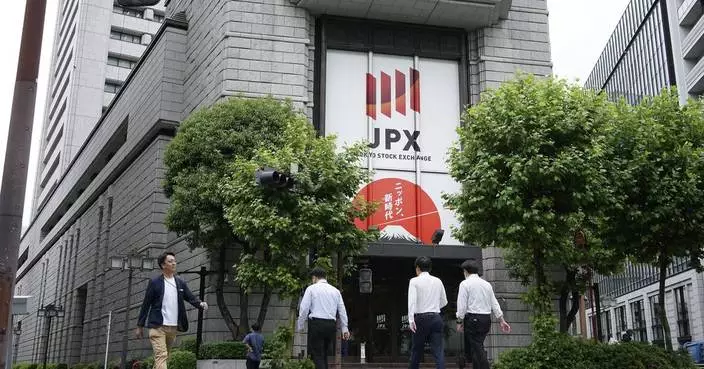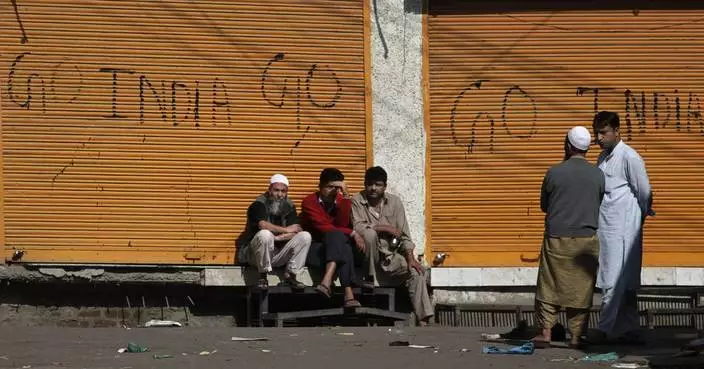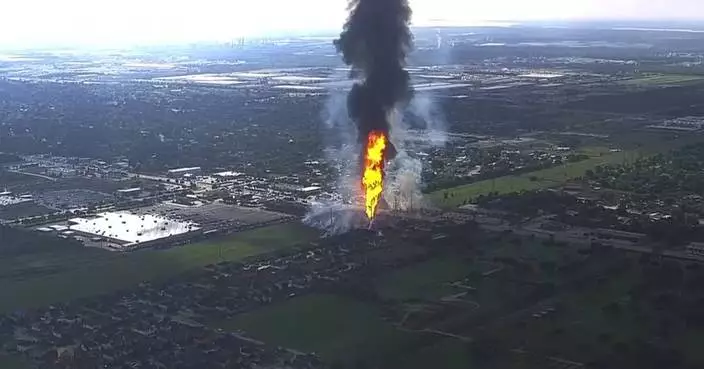MOSCOW (AP) — A Soyuz spacecraft carrying two Russians and an American docked at the International Space Station on Wednesday, a little more than three hours after its launch.
The capsule atop a towering rocket set off at 1623 GMT from Russia’s manned space launch facility in Baikonur, Kazakhstan, and docked with the space station after two orbits of the Earth, a fast trip compared with some that have lasted for days.
Click to Gallery
MOSCOW (AP) — A Soyuz spacecraft carrying two Russians and an American docked at the International Space Station on Wednesday, a little more than three hours after its launch.
In this image provided by NASA, a Soyuz rocket carrying Roscosmos cosmonauts Alexey Ovchinin, Ivan Vagner and NASA astronaut Don Pettit, a new crew to the International Space Station (ISS), blasts off from the Russian leased Baikonur cosmodrome in Kazakhstan, Wednesday, Sept. 11, 2024. (Bill Ingalls/NASA via AP)
In this image provided by NASA, Expedition 72 crew members: Roscosmos cosmonaut Ivan Vagner, top, NASA astronaut Don Pettit, center, and Roscosmos cosmonaut Alexey Ovchinin, wave farewell prior to boarding the Soyuz MS-26 spacecraft for launch, Wednesday, Sept. 11, 2024 at the Baikonur Cosmodrome in Kazakhstan. Launch of the Soyuz rocket will send the trio on a mission to the International Space Station. (Bill Ingalls/NASA via AP)
In this image provided by NASA, a Soyuz rocket carrying Roscosmos cosmonauts Alexey Ovchinin, Ivan Vagner and NASA astronaut Don Pettit, a new crew to the International Space Station (ISS), blasts off from the Russian leased Baikonur cosmodrome in Kazakhstan, Wednesday, Sept. 11, 2024. (Bill Ingalls/NASA via AP)
In this image provided by NASA, a Soyuz rocket carrying Roscosmos cosmonauts Alexey Ovchinin, Ivan Vagner and NASA astronaut Don Pettit, a new crew to the International Space Station (ISS), blasts off from the Russian leased Baikonur cosmodrome in Kazakhstan, Wednesday, Sept. 11, 2024. (Bill Ingalls/NASA via AP)
In this image provided by NASA, a Soyuz rocket carrying Roscosmos cosmonauts Alexey Ovchinin, Ivan Vagner and NASA astronaut Don Pettit, a new crew to the International Space Station (ISS), blasts off from the Russian leased Baikonur cosmodrome in Kazakhstan, Wednesday, Sept. 11, 2024. (Bill Ingalls/NASA via AP)
The crew already aboard the station were performing a lengthy series of system checks before those in the capsule can enter.
The mission commander is Alexei Ovchinin, with Russian compatriot Ivan Vagner and American Donald Pettit in the crew.
The launch took place without obvious problems and the Soyuz entered orbit eight minutes after liftoff, a relief for Russian space authorities after an automated safety system halted a launch in March because of a voltage drop in the power system.
On the space station, Pettit, Vagner and Ovchinin will join NASA’s Tracy Dyson, Mike Barratt, Matthew Dominick, Jeanette Epps, Butch Wilmore and Suni Williams, and Russians Nikolai Chub, Alexander Grebenkin and Oleg Kononenko.
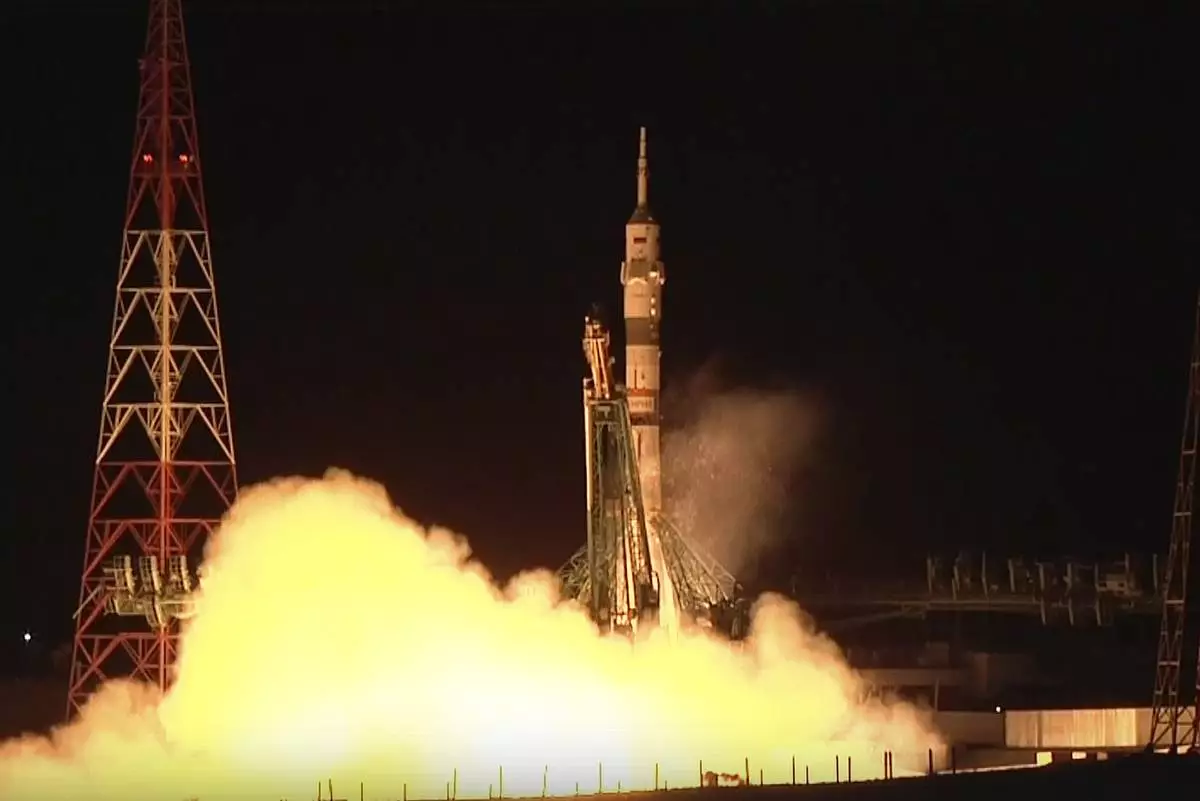
In this photo taken from video released by Roscosmos space corporation, the Soyuz-2.1 rocket booster with Soyuz MS-26 space ship carrying Roscosmos cosmonauts Alexey Ovchinin, Ivan Vagner and NASA astronaut Don Pettit, a new crew to the International Space Station, ISS, blasts off in the Russian leased Baikonur cosmodrome, Kazakhstan, Wednesday, Sept. 11, 2024. (Roscosmos space corporation, via AP)
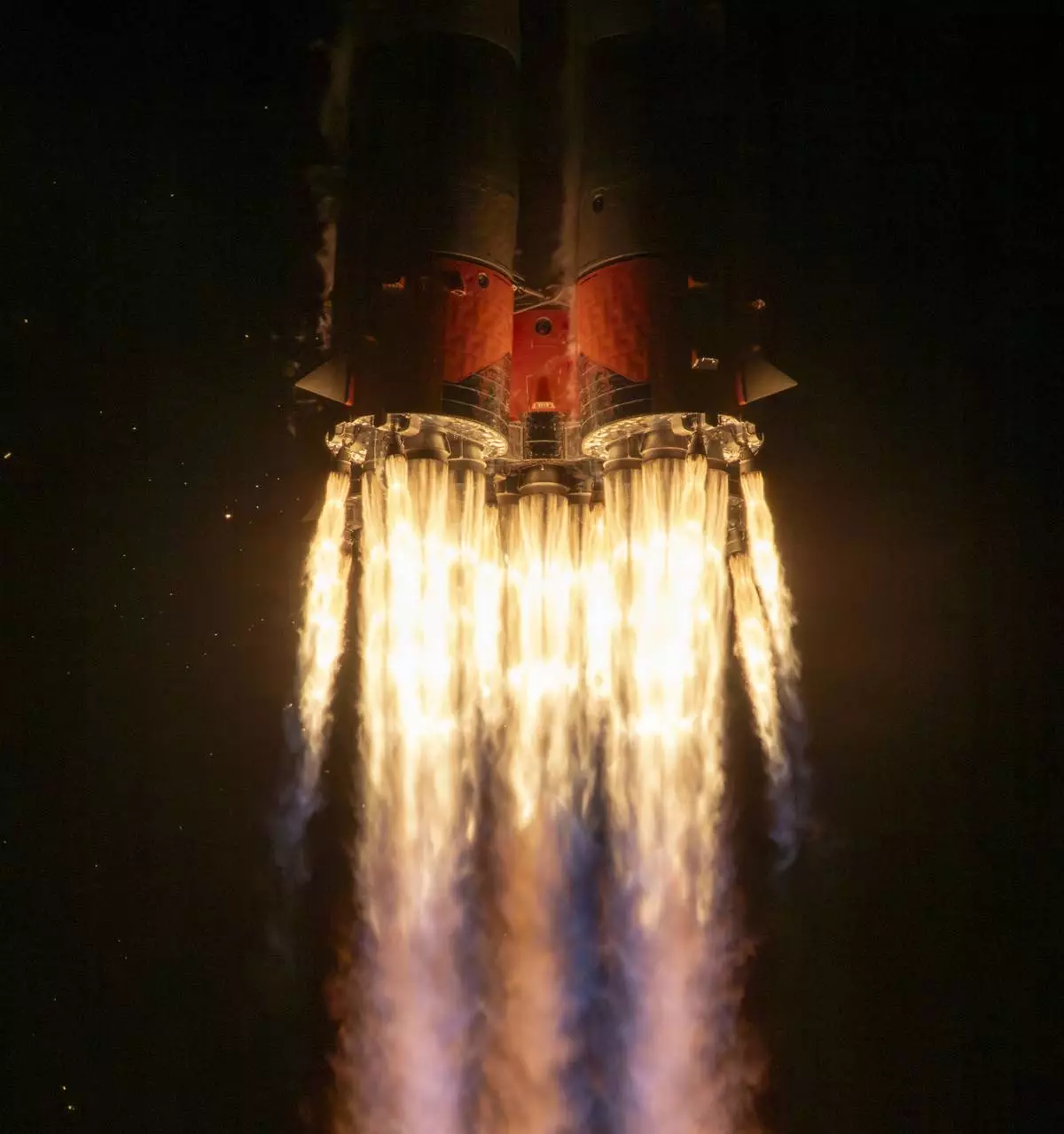
In this image provided by NASA, a Soyuz rocket carrying Roscosmos cosmonauts Alexey Ovchinin, Ivan Vagner and NASA astronaut Don Pettit, a new crew to the International Space Station (ISS), blasts off from the Russian leased Baikonur cosmodrome in Kazakhstan, Wednesday, Sept. 11, 2024. (Bill Ingalls/NASA via AP)
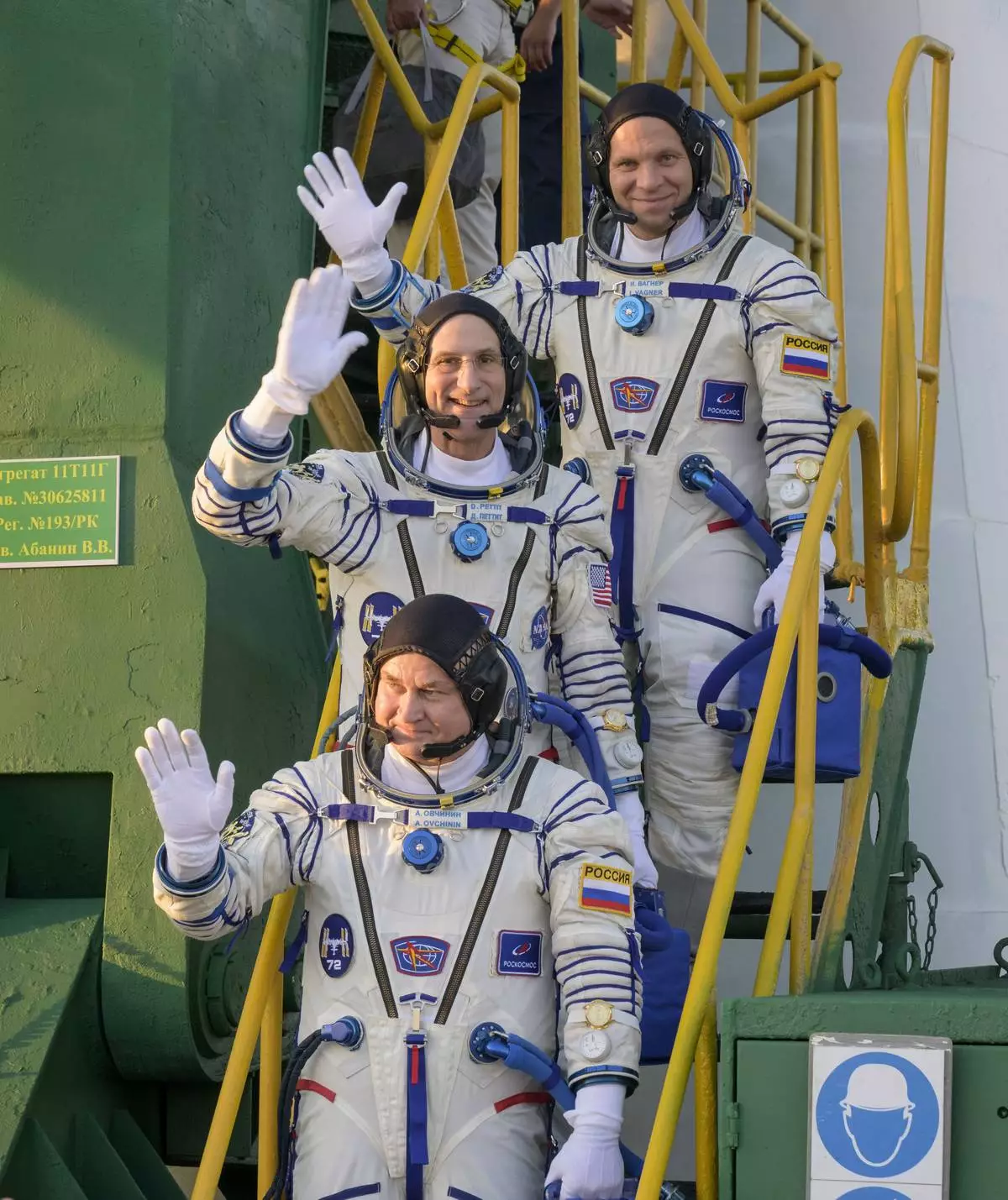
In this image provided by NASA, Expedition 72 crew members: Roscosmos cosmonaut Ivan Vagner, top, NASA astronaut Don Pettit, center, and Roscosmos cosmonaut Alexey Ovchinin, wave farewell prior to boarding the Soyuz MS-26 spacecraft for launch, Wednesday, Sept. 11, 2024 at the Baikonur Cosmodrome in Kazakhstan. Launch of the Soyuz rocket will send the trio on a mission to the International Space Station. (Bill Ingalls/NASA via AP)
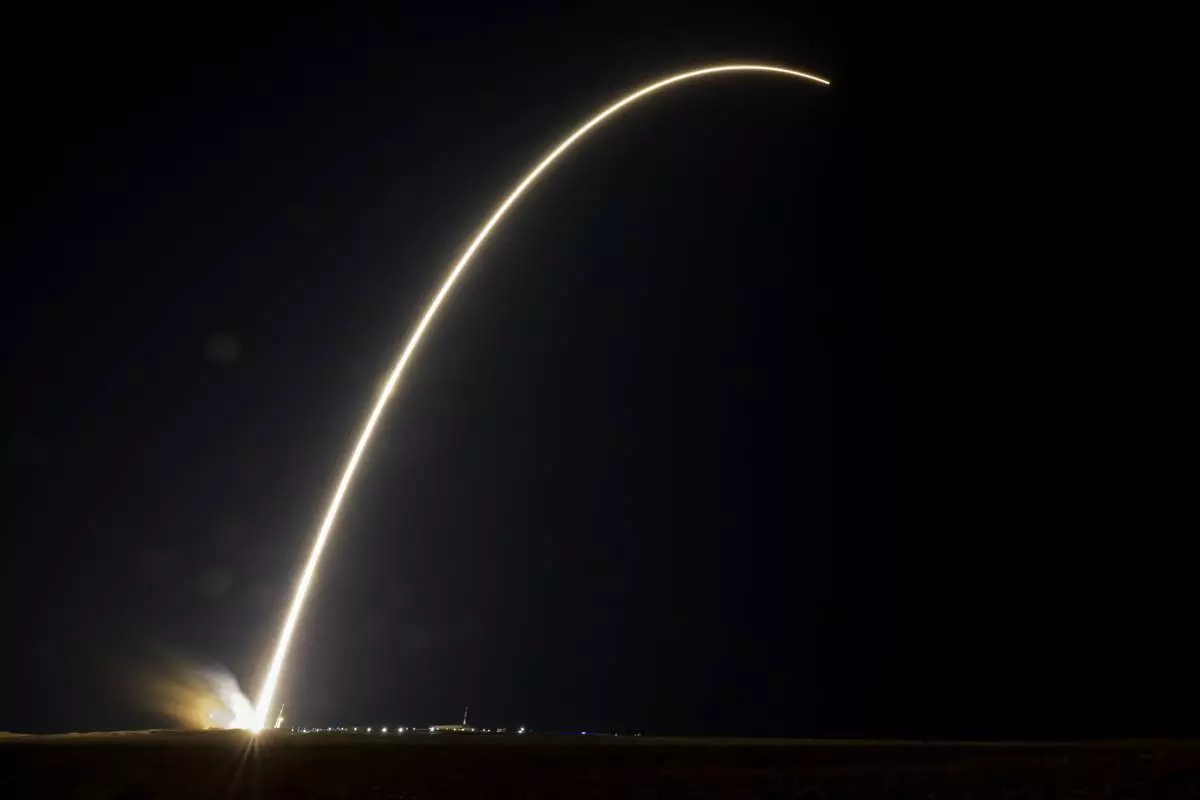
In this image provided by NASA, a Soyuz rocket carrying Roscosmos cosmonauts Alexey Ovchinin, Ivan Vagner and NASA astronaut Don Pettit, a new crew to the International Space Station (ISS), blasts off from the Russian leased Baikonur cosmodrome in Kazakhstan, Wednesday, Sept. 11, 2024. (Bill Ingalls/NASA via AP)
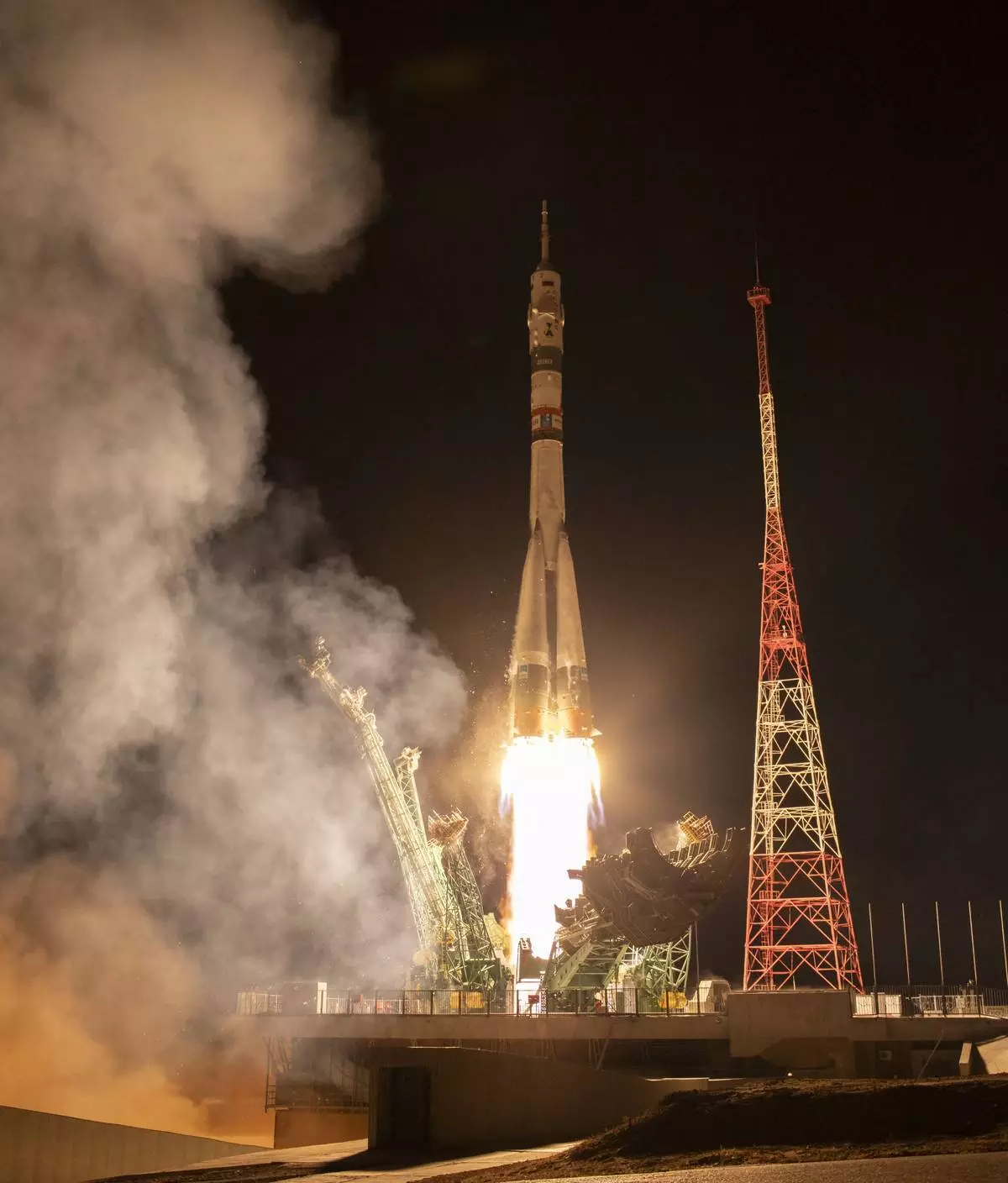
In this image provided by NASA, a Soyuz rocket carrying Roscosmos cosmonauts Alexey Ovchinin, Ivan Vagner and NASA astronaut Don Pettit, a new crew to the International Space Station (ISS), blasts off from the Russian leased Baikonur cosmodrome in Kazakhstan, Wednesday, Sept. 11, 2024. (Bill Ingalls/NASA via AP)
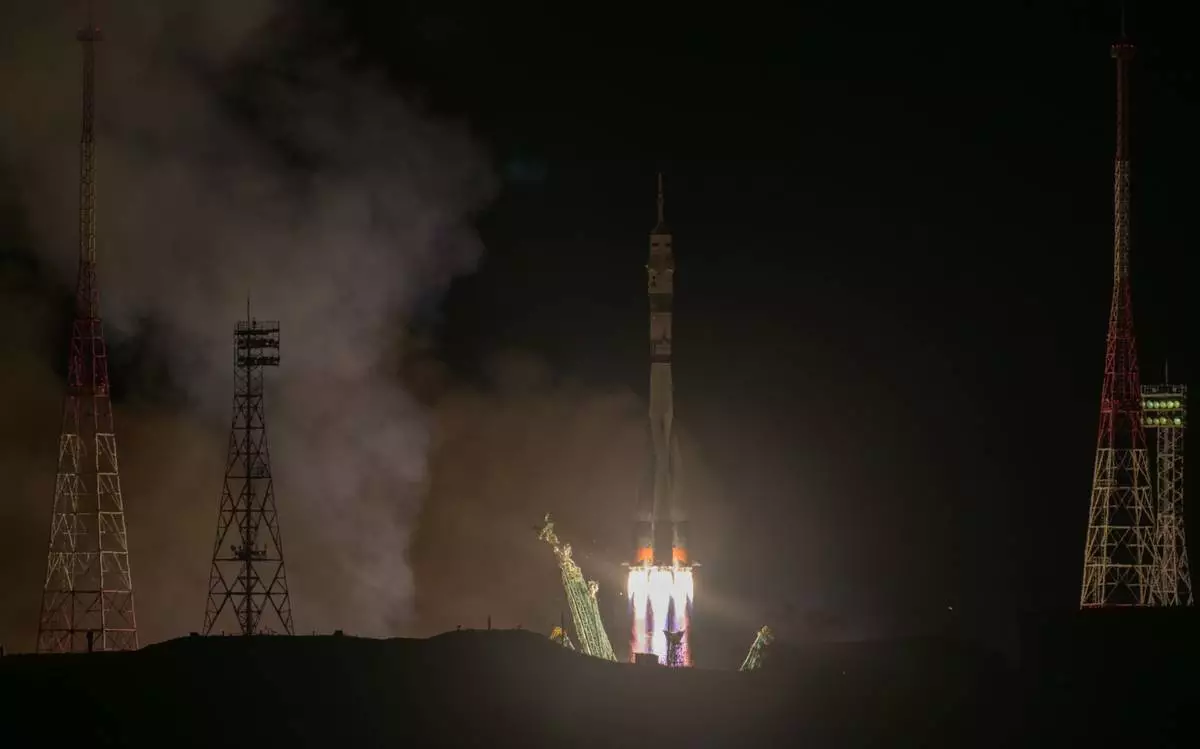
In this image provided by NASA, a Soyuz rocket carrying Roscosmos cosmonauts Alexey Ovchinin, Ivan Vagner and NASA astronaut Don Pettit, a new crew to the International Space Station (ISS), blasts off from the Russian leased Baikonur cosmodrome in Kazakhstan, Wednesday, Sept. 11, 2024. (Bill Ingalls/NASA via AP)
GENEVA (AP) — Independent U.N. human rights experts said in a new report Tuesday that their findings show Venezuela's government has intensified the use of “harshest and most violent" tools of repression following the disputed July presidential election.
The official results of the July 28 vote have been widely criticized as undemocratic, opaque and aimed to maintain President Nicolás Maduro in power.
In its report, the fact-finding mission on Venezuela, commissioned by the U.N.-backed Human Rights Council, denounced rights violations including arbitrary detentions, torture, and sexual and gender-based violence by the country's security forces that “taken as a whole, constitute the crime against humanity of persecution on political grounds.”
“During the period covered by this report, and especially after the presidential election of July 28, 2024, the state reactivated and intensified the harshest and most violent mechanisms of its repressive apparatus,” said the experts in the report, which covered a one-year period through Aug. 31.
The findings echo concerns from U.N. Secretary-General Antonio Guterres, U.S. Secretary of State Antony Blinken, Human Rights Watch, and others about Venezuela and its democracy, including repression before and after the highly anticipated vote and the subsequent flight into exile of Venezuela's opposition leader Edmundo González.
Venezuela’s National Electoral Council, which is stacked with Maduro loyalists, said he won with 52% of the vote. But opposition supporters collected tally sheets from 80% of the nation's electronic voting machines, and said that indicated González had won the election — with twice as many votes as Maduro.
Global condemnation over the lack of transparency prompted Maduro to ask Venezuela’s Supreme Tribunal of Justice, whose members are aligned with the ruling party, to audit the results. The high court reaffirmed his victory.
The independent experts, who do not represent the United Nations, decried the government's efforts to crush peaceful opposition to its rule.
The justice system — led by the Supreme Tribunal — “is clearly subordinated” to the interests of Maduro and his close allies and served as a “key instrument in its plan to repress all forms of political and social opposition,” they wrote.
In the hours after Maduro was declared the winner, thousands of people took to the streets across Venezuela. The protests were largely peaceful, but demonstrators also toppled statues of Maduro’s predecessor, the late Hugo Chávez, threw rocks at law enforcement officers and buildings, and burned police motorcycles and government propaganda.
Maduro's government responded to the demonstrations with full force, carrying out arbitrary detentions, prosecutions as well as a campaign that encourages people to report relatives, neighbors and other acquaintances who participated in the protests or cast doubt on the results.
The independent experts said they compiled the report through interviews with 383 people and reviews of court case files and other documents while also acknowledging limits to their information-gathering in the post-election period.
The experts said their requests for information from Venezuelan authorities were “ignored” despite appeals for cooperation from the rights council, which is made up of a rotating membership among 47 U.N. member countries.
Associated Press writers Regina Garcia Cano in Mexico City and Edith M. Lederer at the United Nations contributed to this report.
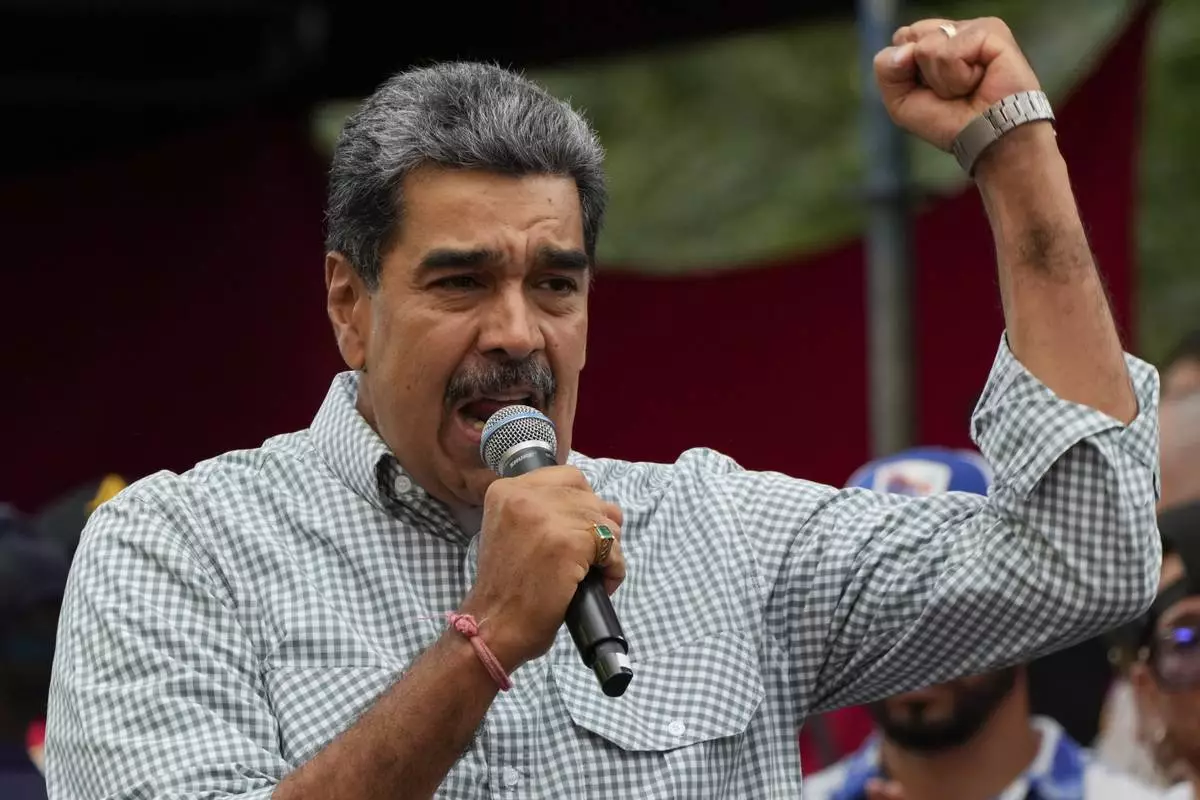
FILE - Venezuela's President Nicolas Maduro addresses government loyalists gathered at the presidential palace in support of his reelection one month after the presidential vote, in Caracas, Venezuela, Aug. 28, 2024. (AP Photo/Ariana Cubillos, File)
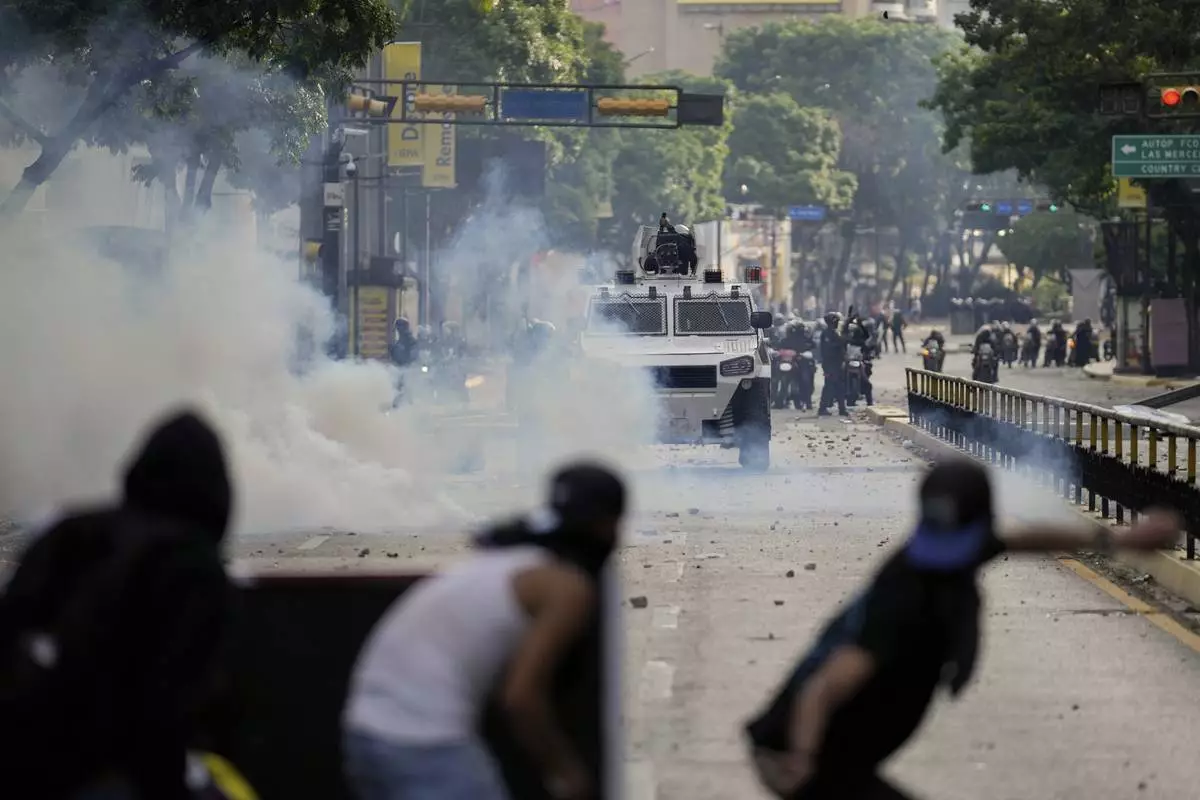
FILE - Protesters clash with police during demonstrations against the official election results declaring President Nicolas Maduro's reelection, the day after the vote in Caracas, Venezuela, July 29, 2024. (AP Photo/Matias Delacroix, File)








